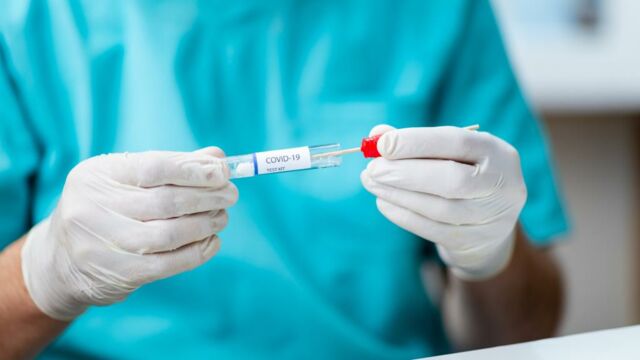Many people believe that aCOVID infection will be nothing to them but a mere cold. However, with the delta variant floating about, no person, young or old, should consider themselves safe from severe infection.
Discover our latest podcast
While vaccination is the best way to protect yourself against the worst coronavirus has to offer, researchers have developed a new saliva test that can determine your chances of developing a severe COVID infection.
How does the test work?
Blood tests for predicting chances of severe COVID infection already exist. However, the new test, created by the company Genetic Technologies, is much simpler to use. All users need to do is take a swab of their saliva and send the sample back to the lab for testing.
Experts concluded that the test is around 73% accurate in determining a patient’s chances of contracting severe COVID infection and works by examining for genetic markers as well as taking into account factors such as age, weight, sex, medical conditions, and overall health.
Initial testing of the new invention took place before January 8 2021, with experts analysing 2,205 cases of severe COVID and 5,416 patients with non-severe infections. However, samples taken for the tests initial study were not from those with the Delta variant as it was not the dominant strain at the time.
Analysis of the new tests was also conducted on those who were not vaccinated against the virus, which is important to note as vaccination is known to reduce chances of severe illness.
A hugely beneficial test for areas with low vaccine availability
The new tests are already available for purchase in the US and have been labelled as a helpful tool in the fight against COVID and could come in handy in regions and countries with low vaccination uptake or availability. The study, published in the journal Epidemiology and Infection, states:
An accurate test to predict risk of severe COVID-19 can inform prioritization of vaccine doses to those most at risk and will be useful in regions in which vaccination is not widespread enough to provide herd immunity - either through unavailability or vaccine hesitancy - if available vaccines are not effective against variants of SARS-CoV-2, or if available vaccines are not indicated for some people.
‘On an individual level, knowledge of personal risk can empower people to make informed choices about their day-to-day activities, including targeted social distancing in the workplace or other crowded places.’
Researchers detailed that the next step would be to determine why some people suffer from long-COVID despite only having mild symptoms during onset infection.















